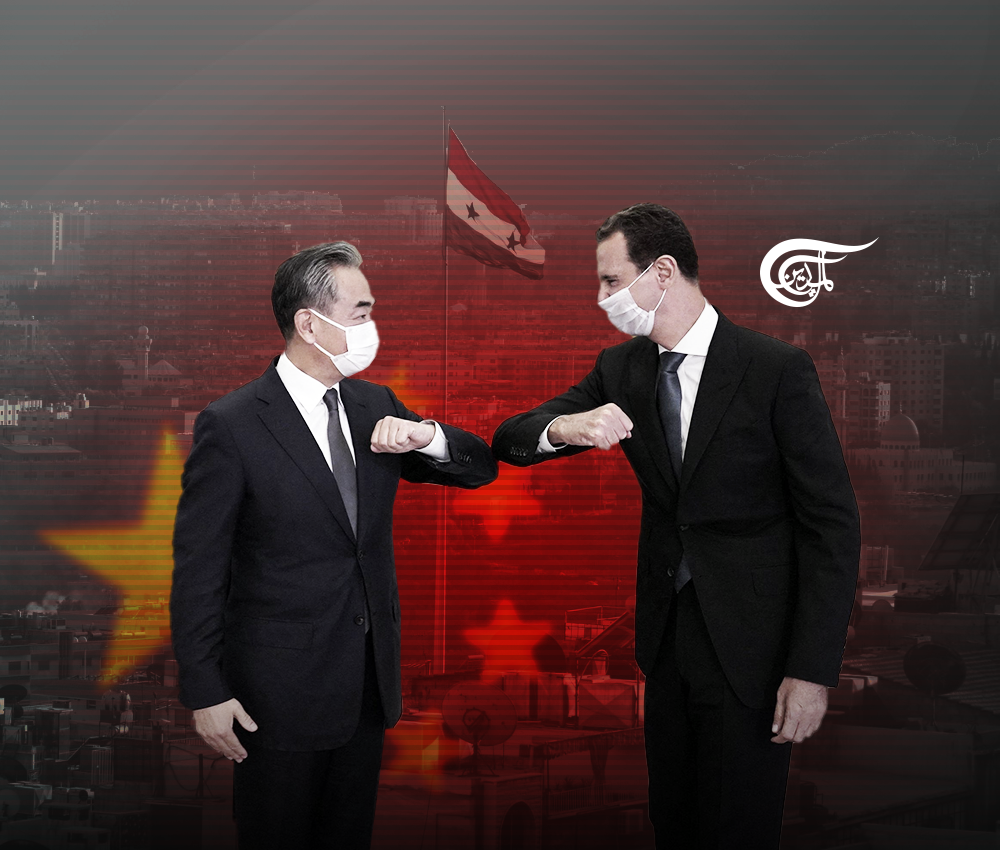A New Order in West Asia: The Case of China's Strategic Presence in Syria
As the world order shifts into a multipolar world, a new balance of power based on economic ties centered in Asia emerges.
-

A New Order in West Asia: The Case of China's Strategic Presence in Syria
Unanimity on a new American century had gone unchecked for a decade. The warhawk John Bolton lambasted Xi's authoritarianism, claiming the new crackdown has made it practically hard for the CIA to keep agents in China.
Eurasian Economic Union (EEU) has evolved enormously since its inception. Today, multipolarity has developed, promising long-term progress for everyone who follows its norms. And Syria is one among them, had lately returned to world prominence after defeating a decade-long military offensive by the traditional unipolar actors.
In spite of this, unlawful US sanctions continue to harm the hungry, impede the rehabilitation of essential infrastructure and access to clean water, and restrict the livelihood of millions in Syria.
"We welcome Syria's involvement in the Belt and Road Initiative and the Global Development Initiative," stated Xi Jinping to Syrian President Bashar Al-Assad on November 5.
In July 2021, Chinese Foreign Minister Wang Yi met with the Arab League's head to discuss Syria's return to the fold. A four-point plan to end Syria's multi-faceted crisis was signed by China at the end of the tour, which coincided with Assad's re-election.
Surrounded by western-backed separatist movements, Syria reiterated its support for China's territorial integrity. In 2018, China gave Syria $28 million, and in September 2019, Iraqi Prime Minister Adil Abdul Mahdi proposed China-Iraq oil for rebuilding and greater BRI integration.
Events orchestrated by foreign forces halted this progress. Protests swiftly overthrew Abdul Mahdi's administration and the oil-for-reconstruction scheme. In recent months, Iraq has rekindled this endeavor, but progress has been modest.
These projects are currently mostly channeled through the 25-year Comprehensive Strategic Partnership deal between China and Iran in March 2021. This might open the way for future rail and energy lines connecting Iran with Iraq and Syria.
At the first formal BRI meeting in April 2019, President Assad stated: "The Silk Route (Belt and Road Initiative) crossing through Syria is a foregone conclusion when this infrastructure is constructed, since it is not a road you can merely put on a map."
China and Syria are now staying quiet on specifics. Assad's wish list may be deduced from his previous strategic vision for Syria. Assad's Five Seas Strategy, which he pushed from 2004 to 2011, has gone after the US began attacking Syria.
The "Five Seas Strategy" includes building rail, roads, and energy systems to connect Syria to the Mediterranean, Persian Gulf, Black, Red, and Caspian Seas. The project is a logical link that connects Mackinder's world island's states. This initiative was "the most significant thing" Assad has ever done, he claimed in 2009.
Azerbaijan, Iran, Iraq, and Lebanon were among the countries Assad led delegations to sign agreements with in 2011. President Qaddafi of Libya and a coalition of nations including Sudan, Ethiopia, and Egypt were building the Great Man-Made River at the time.
We can't comprehend why Qaddafi was killed, why Sudan was partitioned in 2009, or why the US is presently financing a regime change in Ethiopia until we grasp this tremendous, game-changing strategic paradigm. Diplomatic confidentiality between China and West Asia is so essential in the post-regime transition situation.
Over the last decade, BRI-compliant initiatives throughout West Asia and Africa have been sabotaged in various ways. This has been a pattern. Neither Assad nor the Chinese want to go back to that.
The Arab League re-admitted Syria on November 23, revealing the substance of this hidden diplomacy. They have proved that they are prepared to accept their humiliation, acknowledge Assad's legitimacy, and adjust to the new Middle Eastern powers of China and Russia: the UAE and Saudi Arabia. Unlike decades of US promises that consider Arab participation as disposable short-term interests, the China-Russia cooperation provides genuine, demonstrable advantages for everybody.
The BRI now includes 17 Arab and 46 African countries, while the US has spent the last decade sanctioning and fining those who do not accept its global hegemony. Faced with a possible solution to its current economic problems and currency fluctuations, Turkey has turned to China for help.
Buying ISIS-controlled oil, sending extremist fighters to the region, and receiving arms from Saudi Arabia and Qatar were all known methods of supporting ISIS and Al Qaeda operations in Iraq and Syria. The CIA's funding has dwindled in recent months, leaving ISIS with little else to work with.
Though US President Joe Biden reiterated US military backing for the Kurdish-led Syrian Defense Forces (SDF), the Kurds' hand has been overplayed. Many people now realize that the Kurds have been tricked into acting as ISIS' counter-gang, and that promises of a Kurdish state are as unreal as Assad's demise. For a long time, it was evident that Syria’s only hope for survival was Russia's military assistance and China's BRI, both of which need Turkey to preserve Syria's sovereignty.
This new reality and the impending collapse of the old unipolar order in West Asia give reason to believe that the region, or at least a significant portion of it, is already locked in and counting on the upcoming development and connectivity boom.

 Mohamad Zreik
Mohamad Zreik
 5 Min Read
5 Min Read











